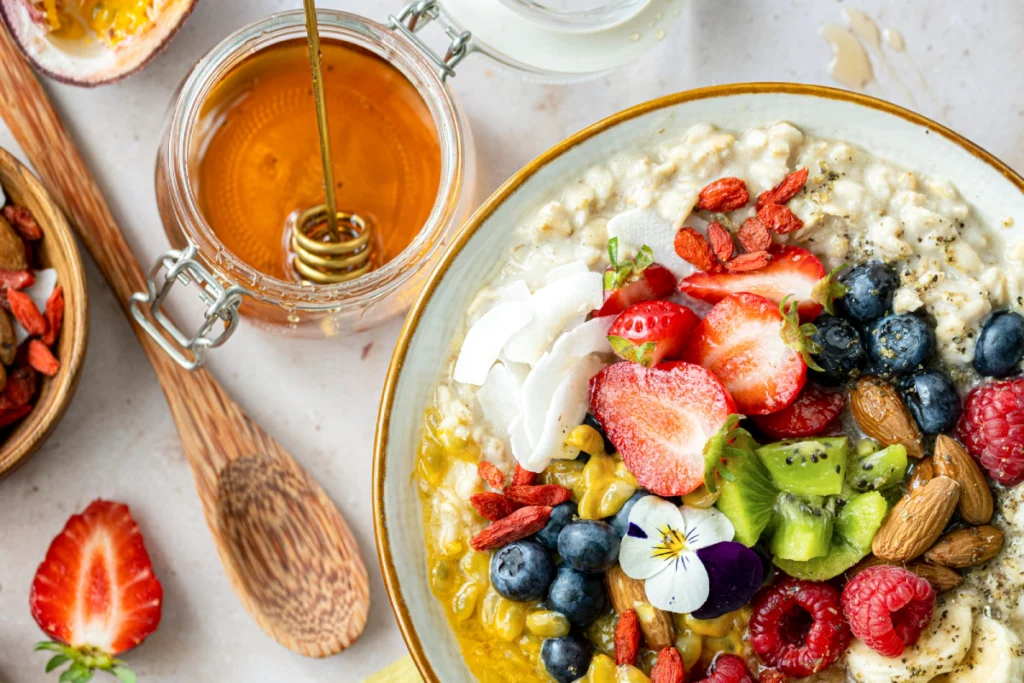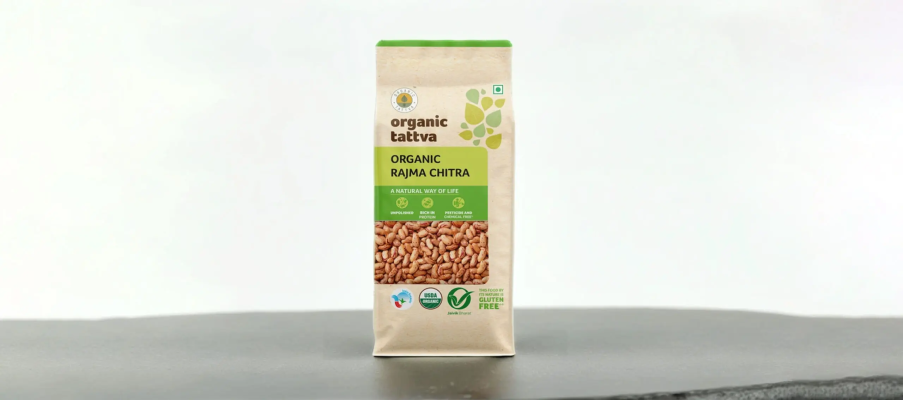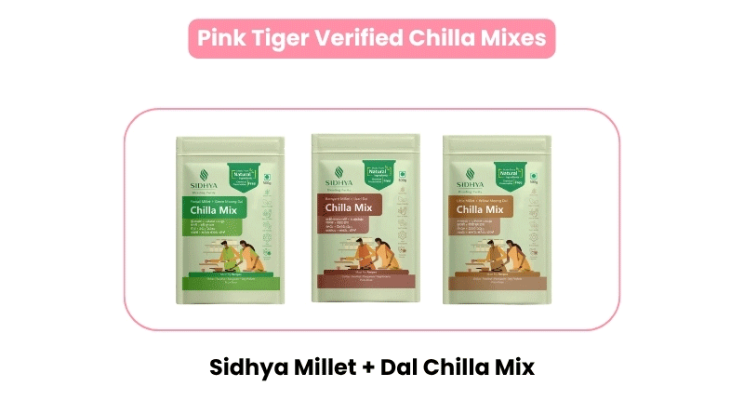Breakfast Boost: 5 Protein-Rich Indian Recipes for Energy

Table of Contents
Introduction
They say breakfast is the most important meal of the day, and they are right. A balanced protein-rich Indian breakfast not only fuels your body but also sets the tone for better focus, metabolism, and energy. Whether you are gearing up for a workout, diving into your workday, or managing the chaos at home, your first meal should be about more than just filling your belly. It should kickstart your energy, keep your mood steady, and put a smile on your face.
Imagine this: you start your day with a breakfast rich in protein and fibre, which keeps you feeling full longer, helps balance blood sugar levels, and supports your metabolism. Unlike those carb-heavy breakfasts that leave you crashing around 10 AM, energising foods packed with plant-based protein, complex carbs, and healthy fats fuel you for the whole morning without the mid-morning slump.
So, whether you are a fan of traditional dishes or love a modern twist, let me introduce you to five tasty, nutritionist-approved vegetarian breakfast ideas. Not only packed with protein and fibre, but they are also bursting with flavour, and they are super easy to whip up!
🧪 A 2024 Danish study found that people who ate a protein-rich breakfast experienced greater satiety and focus, while another study that year showed that balanced protein distribution, especially at breakfast, supported fat loss and reduced cravings.¹,²
Pubmed : https://pubmed.ncbi.nlm.nih.gov/38135050/
Why Protein and Superfoods Matter in Breakfast?
The Role of Protein in Morning Energy
Think of protein as the bedrock for your morning routine. It’s crucial for muscle recovery, metabolism, and let’s be honest, keeping those pesky cravings at bay. Starting your day with a protein boost means stabilised blood sugar and energy that doesn’t take a nosedive come mid-morning.
🧪 A 2025 analysis published in Nutrients showed that breakfast protein intake was strongly linked to improved energy balance and reduced overeating later in the day.³
Pubmed : https://pmc.ncbi.nlm.nih.gov/articles/PMC11099237/
DID YOU KNOW?
Research shows that consuming protein in the morning aligns well with your body’s circadian rhythm, which is the internal clock regulating metabolic processes. Your body is more efficient at digesting, absorbing, and utilizing amino acids during the active phase of the day compared to nighttime. For example, taking in protein at breakfast is more effective for supporting muscle growth and strength than consuming the same amount at dinner. This suggests that circadian rhythms play a role in protein metabolism. Since the peripheral metabolic “clocks” in tissues like muscle and liver are more responsive during the daytime, the morning period provides an ideal opportunity for protein assimilation and utilization.
MDPI : https://www.mdpi.com/2072-6643/17/13/2135
Oxford Academic : https://academic.oup.com/nutritionreviews/article/83/8/1571/8058742
For our vegetarian friends, fear not! There are endless plant-based protein options. Think lentils, chickpeas, nuts, seeds, and millets; not only are they versatile, but they also pack a nutritious punch. A breakfast loaded with these can easily provide 15-20 grams of protein. Try something like moong dal chilla, rajma toast, or a besan omelette for a delicious start to your day.
The Power of Fibre & Superfoods
But wait, there is more! While protein is essential, pairing it with fibre and superfoods gives you that staying power. High-fibre breakfasts slow down digestion, stabilise glucose release, and nurture a healthy gut, a total game-changer for your mood and immunity.
Indian superfoods such as millets, flaxseeds, makhana (fox nuts), chia seeds, cacao, and amaranth are a delightful mix of fibre, antioxidants, and minerals that help keep inflammation low and energy levels high. For example:
~ Flaxseeds can boost heart health and help balance hormones.
~ Millets are slow-digesting and full of magnesium.
~ Makhana is a protein-rich snack that won’t weigh you down.
~ And raw cacao? It gives you a little energy lift while brightening up your mood!
🧪 Regular consumption of millets and fibre-rich cereals has been shown to lower blood sugar levels (FBS by ~11.8% and PPBS by ~15%), enhance antioxidant capacity, and promote steady glucose release, offering better satiety and metabolic balance compared to refined grains.4,5
Pubmed : https://pubmed.ncbi.nlm.nih.gov/39861438/
And if you incorporate these ingredients into your breakfast along with good protein, you’ll be fueling your metabolism and brainpower without needing that extra cup of coffee.
Let’s Get Cooking: 5 Protein-Rich Indian Breakfasts
Let’s dive into five delicious, easy-to-make high-protein Indian breakfast recipes that are both traditional and modern, ideal for busy mornings or post-workout fuel.
1. Rajma Protein Toast : Fibre + Protein Powerhouse
How to make:
1. Mash ½ cup of boiled rajma (kidney beans) with a pinch of salt, a sprinkle of cumin, chopped onions, and a splash of lemon juice.
2. Spread this mixture on multigrain or sourdough toast.
3. Top it off with fresh coriander and a drizzle of olive oil or tahini.
Why it’s great:
Rajma is a hidden gem packed with around 8g of protein per 100g, plus a healthy dose of iron and slow-releasing carbs for sustainable energy. The fibre in rajma helps with digestion and gut health, while the toast gives you those essential complex carbs. Pair it with green chutney or some crunchy cucumber slices for an extra kick!
To choose tested and safe product, check out Pink Tiger Verified

2. Millet & Dal Chilla : Your Desi Protein Pancake
How to make:
1. Soak ½ cup moong dal overnight.
2. Grind with 2 tablespoons of millet flour (ragi or bajra) and add water to make a smooth batter.
3. Add chopped veggies, salt, turmeric, and cumin.
4. Pan-cook on a non-stick tawa until golden brown.
For an easy and quick option, check out

Why it’s great:
This high-protein Indian breakfast combines lentil protein with the complex carbs of millets, delivering 10-12g protein per serving. Moong dal supports muscle repair, while millets add minerals and fibre. This plant-based protein breakfast is gluten-free and ideal for people managing weight or blood sugar.
3. Millet Flour Idli/Dosa : South Indian Protein Classic
How to make:
1. Replace rice with ragi, jowar, or bajra flour in your regular idli or dosa batter.
2. Ferment overnight, then steam or cook as usual.
3. Serve with sambar and coconut chutney for a balanced meal.
For an easy and quick option, check out

Why it’s great:
A traditional favourite with a nutritious twist! Millets are naturally high in fibre and contain essential amino acids often missing in vegetarian diets. They’re rich in calcium, iron, and antioxidants, making this an excellent high-protein Indian food for breakfast. The fermentation adds probiotics, improving gut health and nutrient absorption. Ideal for those who prefer a healthy breakfast idea (India) rooted in tradition.
4. Makhana & Chocolate Protein Porridge : The Sweet Superfood Start
How to make:
1. Roast 1 cup makhana (fox nuts) until crisp, then grind into powder.
2. In a saucepan, heat 1 cup milk (or almond milk) with 1 tbsp unsweetened cocoa, 1 tsp chia seeds, and 1 scoop protein powder.
3. Add makhana powder and simmer until thick. Sweeten naturally with dates or jaggery.
To choose tested and safe product, check out Pink Tiger Verified

Why it’s great:
Who says healthy can’t taste indulgent? This creamy protein porridge combines makhana, cocoa, and chia for a nutrient-rich, antioxidant-packed breakfast. It’s a healthy chocolate breakfast that boosts serotonin levels and morning focus. Makhana provides plant protein and magnesium, while chia adds omega-3s and fibre, perfect for those seeking morning energy foods that don’t spike blood sugar.
5. Besan & Vegetable Omelette : Quick High-Protein Fix
How to make:
1. Mix ½ cup besan (gram flour) with chopped onions, tomatoes, spinach, turmeric, and water to make a smooth batter.
2. Cook like a pancake on a non-stick pan until golden on both sides.
3. Serve with mint chutney or avocado slices.
Why it’s great:
This besan chilla breakfast is one of the quickest high-protein vegetarian meals you can make. Besan is rich in protein, iron, and B vitamins, and when paired with veggies, it offers fibre and antioxidants.
Perfect for rushed mornings; it’s gluten-free, oil-light, and ready in under 10 minutes. Add a side of Greek yogurt or paneer cubes for extra protein.
Tips for a Quick & Healthy Breakfast
Even the healthiest recipes can lose their magic if your mornings are rushed. Here’s how to make your quick, healthy breakfast both doable and delicious:
1. Plan ahead: Soak dals or prep batter the night before. Store them in the fridge for easy use.
2. Add healthy sides: Include nuts, seeds, or Greek yogurt for extra protein and healthy fats.
3. Avoid refined sugar: Opt for natural sweeteners like jaggery, dates, or honey.
4. Stay hydrated: Start your morning with warm water and lemon or a green smoothie for hydration and antioxidants.
5. Use smart swaps: Replace white bread with multigrain, refined flour with millets, and sugary spreads with nut butter or hummus.
🧪 A 2025 heart-health study showed that consuming 20-30% of daily calories at breakfast supports healthy weight and cholesterol levels in adults.6
Science Direct : The Journal of nutrition, health and aging : https://www.sciencedirect.com/science/article/pii/S1279770724004949
These habits not only help you make high-protein breakfast Indian recipes faster but also ensure your morning meal truly energises you.
Conclusion
Fueling your body with a protein-rich Indian breakfast is one of the simplest ways to elevate your health, energy, and focus. These 5 recipes, from Rajma Toast to Millet Chilla and Makhana Porridge, combine traditional Indian taste with modern nutrition.
They’re high in plant protein, fibre, and superfoods, helping you maintain stable energy levels, better metabolism, and improved concentration throughout the day.
If you’re ready to power up your mornings, explore YouCare Lifestyle’s range of clean ingredients from gluten-free flours to natural sweeteners and make every breakfast a step toward better health.
Read our blog on anti-inflammatory superfoods to complement your meals.

Frequently Asked Questions (FAQs)
1. What is a good protein-rich Indian breakfast?
A good protein-rich Indian breakfast includes foods like moong dal chilla, besan omelette, rajma toast, or millet idlis. These combine plant-based proteins and fibre for sustained energy. Recent studies (2024) show that protein at breakfast improves satiety, concentration, and metabolic health.
Pubmed : https://pubmed.ncbi.nlm.nih.gov/38135050/
2: How much protein do I need in breakfast?
Most adults benefit from 15-25 g of protein at breakfast, depending on body weight and activity. Some studies used ~30 g to see differences in metabolic markers in adolescents when switching from a low to a high protein breakfast.
3: Are these breakfasts suitable for vegetarians?
Yes! All recipes here are high-protein vegetarian breakfasts using pulses, legumes, millets, dairy or plant-based milks. Studies about plant protein sources and millets support good protein quality and health outcomes
4: Can I prepare these breakfasts in advance?
Absolutely. Many recipes allow batter preparation ahead, or pre-roasting or soaking. Prepping makes it easier to keep up with quick, healthy breakfast habits. Research shows consistency and composition benefit health, so prep pays off.
5: Which superfoods are best for breakfast energy?
Some top choices are millets, makhana, chia seeds, flaxseeds, pulses (moong, rajma, chana), and raw cacao. These offer fibre, antioxidants, healthy fats, protein, and help with blood sugar management. The recent systematic review on millets and the high-fibre cereals study illustrate their usefulness.
Disclaimer : This content is for informational purposes only and is not a substitute for professional medical advice, diagnosis, or treatment. Always consult a qualified healthcare provider for any questions or concerns regarding your health.
References :
1. Dalgaard, L. B., Kruse, D. Z., Norup, K., Andersen, B. V., & Hansen, M. (2024). A dairy-based, protein-rich breakfast enhances satiety and cognitive concentration before lunch in overweight to obese young females: A randomized controlled crossover study. Journal of dairy science, 107(5), 2653–2667. https://doi.org/10.3168/jds.2023-24152
2. Aarhus University. (2024, February 15). Protein-rich breakfast boosts satiety and concentration. ScienceDaily. www.sciencedaily.com/releases/2024/02/240215113604.htm
3. Layman D. K. (2024). Impacts of protein quantity and distribution on body composition. Frontiers in nutrition, 11, 1388986. https://doi.org/10.3389/fnut.2024.1388986
4. Grover, Ritu; Khutan, Himanshu1; Jain, Amit; Arora, Hobinder2; Kushwaha, Gaurav; Goyal, Naman3. Impact of Adding a Millet Diet on Glycemic Control and Lipid Profile in Patients with Type 2 Diabetes Mellitus. Annals of African Medicine ():10.4103/aam.aam_69_25, July 23, 2025. | DOI: 10.4103/aam.aam_69_25
5. Wilkinson, N. M., Niaz, T., Tann, E., Croden, F., Boyle, N. B., Mackie, A., & Dye, L. (2025). Novel Fibre-Rich Breads Yield Improved Glucose Release Curves and Are Well Accepted by Children in Primary School Breakfast Clubs. Nutrients, 17(2), 308. https://doi.org/10.3390/nu17020308
6. Karla-Alejandra Pérez-Vega, Camille Lassale, María-Dolores Zomeño, Olga Castañer, Jordi Salas-Salvadó, F. Javier Basterra-Gortari, Dolores Corella, Ramón Estruch, Emilio Ros, Francisco J. Tinahones, Gemma Blanchart, Mireia Malcampo, Daniel Muñoz-Aguayo, Helmut Schröder, Montserrat Fitó, Álvaro Hernáez, Breakfast energy intake and dietary quality and trajectories of cardiometabolic risk factors in older adults, The Journal of nutrition, health and aging, Volume 28, Issue 12, 2024, 100406, ISSN 1279-7707, https://doi.org/10.1016/j.jnha.2024.100406.
7. Reytor-González, C., Simancas-Racines, D., Román-Galeano, N. M., Annunziata, G., Galasso, M., Zambrano-Villacres, R., Verde, L., Muscogiuri, G., Frias-Toral, E., & Barrea, L. (2025). Chrononutrition and Energy Balance: How Meal Timing and Circadian Rhythms Shape Weight Regulation and Metabolic Health. Nutrients, 17(13), 2135. https://doi.org/10.3390/nu17132135
8. Mariarosaria Negri, Claudia Pivonello, Feliciana Amatrudo, Fabiano Cimmino, Giovanna Trinchese, Claudia Vetrani, Guido Iaccarino, Rosario Pivonello, Maria Pina Mollica, Annamaria Colao, Effects of Chrono-Exercise and Chrono-Nutrition on Muscle Health: Understanding the Molecular Mechanisms Activated by Timed Exercise and Consumption of Proteins and Carbohydrates, Nutrition Reviews, Volume 83, Issue 8, August 2025, Pages 1571–1593, https://doi.org/10.1093/nutrit/nuaf007
Protein-rich Indian blends made with millets and lentils are truly a powerhouse for everyday nutrition. A delicious way to add clean, plant-based protein to your daily routine!”